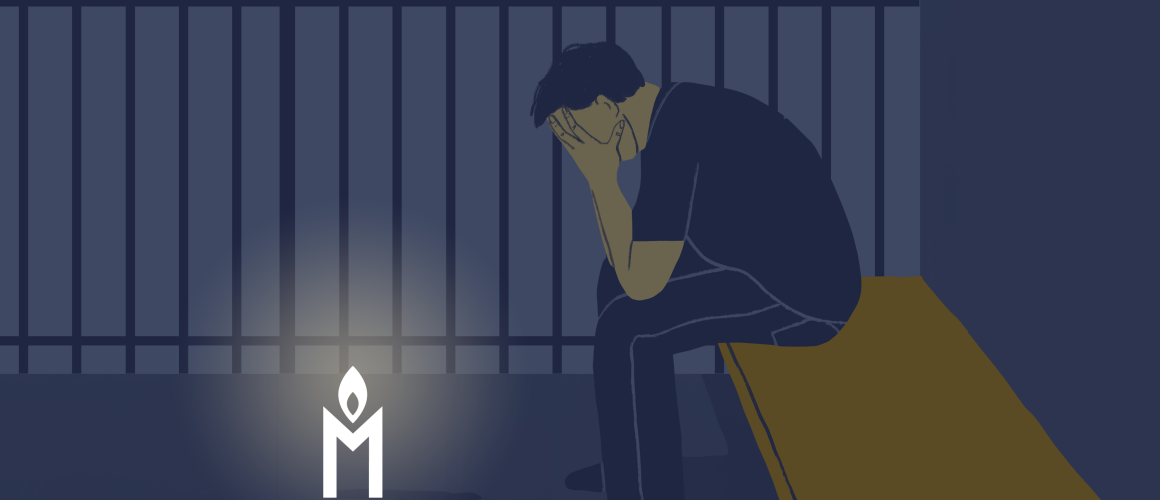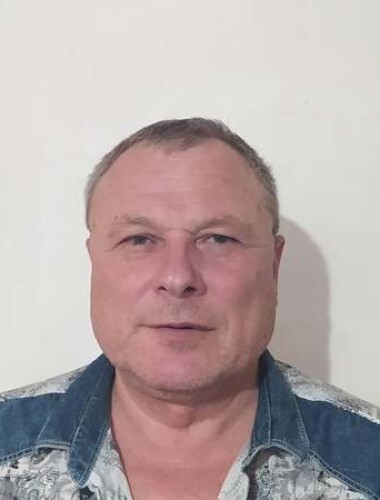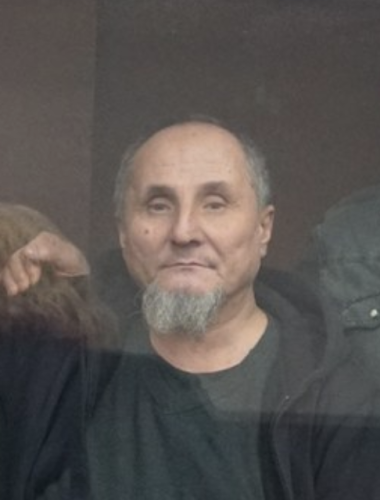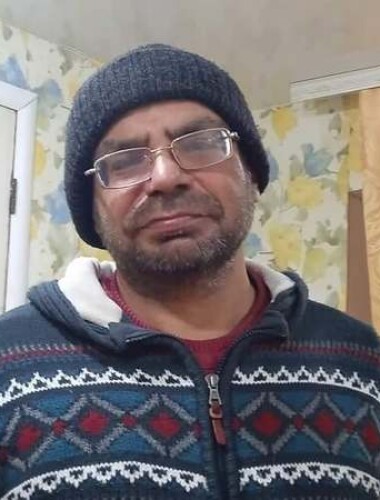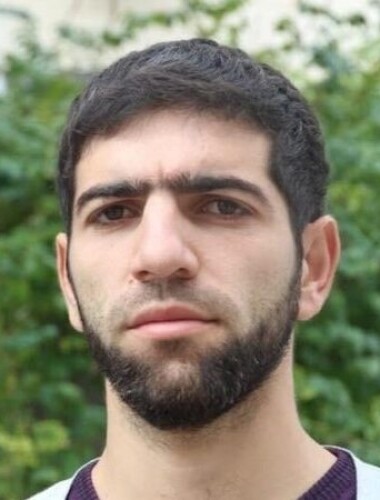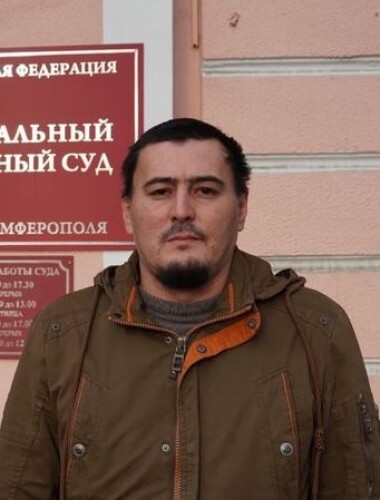Five Crimean Tatars accused of involvement in Hizb ut-Tahrir are political prisoners
They face long prison sentences on ‘terrorism’ charges for discussing religious matters in 2015
The ‘Political Prisoners. Memorial’ human rights project, in accordance with international standards, considers Enver Krosh, Rinat Aliev, Seityaga Abbozov, Edem Bekirov, and Vilen Temeryanov political prisoners. Their criminal prosecutions, related to their alleged involvement in the Hizb ut-Tahrir al-Islami party, which is banned in Russia, violate their rights to freedom of religion, freedom of association, and fair trial.
We demand the immediate release of Enver Krosh, Rinat Aliev, Seityaga Abbozov, Edem Bekirov, and Vilen Temeryanov and an end to their criminal prosecution.
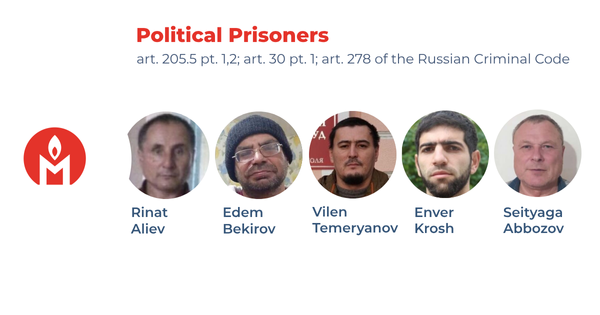
Who are the defendants and what are the charges against them?
Enver Krosh, Rinat Aliev, Seityaga Abbozov, Edem Bekirov, and Vilen Temeryanov are Crimean Tatars from the Dzhankoi district of occupied Crimea.
Krosh is a civic activist. Temeryanov is a civic journalist working with Krymskaya solidarnost [Crimean Solidarity], a movement with which the other defendants in the case are also associated. Many of them have been involved in supporting Crimean political prisoners and their families.
All five men were arrested on 11 July 2022 on charges of organising the activities of a terrorist organisation (Article 205.5, Parts 1 & 2, of the Russian Criminal Code) for alleged involvement in Hizb ut-Tahrir, which is banned in Russia. Abbozov was placed under house arrest; the others were remanded in custody.
According to the FSB, Enver Krosh created a Hizb ut-Tahrir cell in Crimea’s Dzhankoi district. Rinat Aliev, Seityaga Abbozov, Edem Bekirov, and Vilen Temeryanov became its members. All have been charged with studying and spreading the ideology of Hizb ut-Tahrir.
In addition, the FSB says the Crimean Tatars intended to ‘create an ideal state of Muslims (the world Islamic Caliphate)’ and charged all of them with making preparations for a violent seizure of power (Article 30, Part 1, in conjunction with Article 278 of the Russian Criminal Code).
Why do we consider the five men political prisoners?
The investigations in the cases of Enver Krosh, Rinat Aliev, Seityaga Abbozov, Edem Bekirov, and Vilen Temeryanov did not provide the court with evidence of their terrorist activities, preparation of terrorist acts, storage of ammunition or even incitement of violence. The charges are based only on the fact that the activists participated in the activities of Hizb ut-Tahrir, holding meetings with like-minded people. The fact that the main evidence of the guilt of the defendants is an audio recording of a meeting that took place seven years before their arrest seems particularly absurd.
We consider the 2003 decision of the Russian Supreme Court which declared Hizb ut-Tahrir a terrorist organisation to be unfounded. The ruling contains no evidence that the organisation’s activities are of a terrorist nature. We do not know of a single instance anywhere in the world where members of Hizb ut-Tahrir have committed or prepared acts of terrorism.
At the same time, the decision of the Russian Supreme Court has resulted in the simplification of procedures for investigating ‘terrorist’ cases related to Hizb ut-Tahrir. Following the ruling, to obtain a conviction on terrorism charges against members of the organisation there has been no need to prove the commission or preparation of an act of terrorism. Russian law enforcement agencies have taken advantage of this ruling to artificially inflate their success rate in solving crimes of a terrorist nature.
In annexed Crimea, the prosecution of members of Hizb ut-Tahrir also serves the purpose of suppressing the Crimean Tatars, a group not noted historically for their loyalty to Russian authorities. Crimean Tatars were not in favour of the 2014 annexation of the peninsula by Russia and have been persecuted ever since. In Ukraine, Hizb ut-Tahrir conducts its activities absolutely legally.
Furthermore, the defendants in the case have been active participants in the Crimean Solidarity movement and provided assistance to Crimeans prosecuted by the Russian authorities. Charges of involvement in Hizb ut-Tahrir are also probably being used as a means to suppress public solidarity and civic activism among the residents of Crimea.
A detailed description of the case and the position of the Human Rights Project are set out on our website.
Recognition of an individual as a political prisoner does not imply the ‘Political Prisoners. Memorial’ project agrees with, or approves of their views, statements, or actions.
How can you help?
Letters can be written to the four defendants in custody at the following address (letters must be written in Russian):
In Russian: 344022, Ростовская область, г. Ростов-на-Дону, ул. Максима Горького, д. 219, ФКУ СИЗО-1 ГУФСИН России по Ростовской области,
— Крошу Энверу Умеровичу, 1991 г.р.,
— Алиеву Ринату Аблятифовичу, 1964 г.р.,
— Бекирову Эдему Асановичу, 1976 г.р.,
— Темерьянову Вилену Фаридовичу, 1985 г.р.
In English: Enver Umerovich Krosh (born 1991); Rinat Ablyatifovich Aliev (born 1964); Edem Asanovich Bekirov (born 1976); Vilen Faridovich Temeryanov (born 1985).
Remand Prison No. 1, Russian Federal Penitentiary Service for the Rostov region, 219 Maksima Gorkogo Street, Rostov-on-Don, 344022, Russia.
Electronic letters can be sent via the Zonatelecom service.
Information on donating to support political prisoners can be found on our website.
